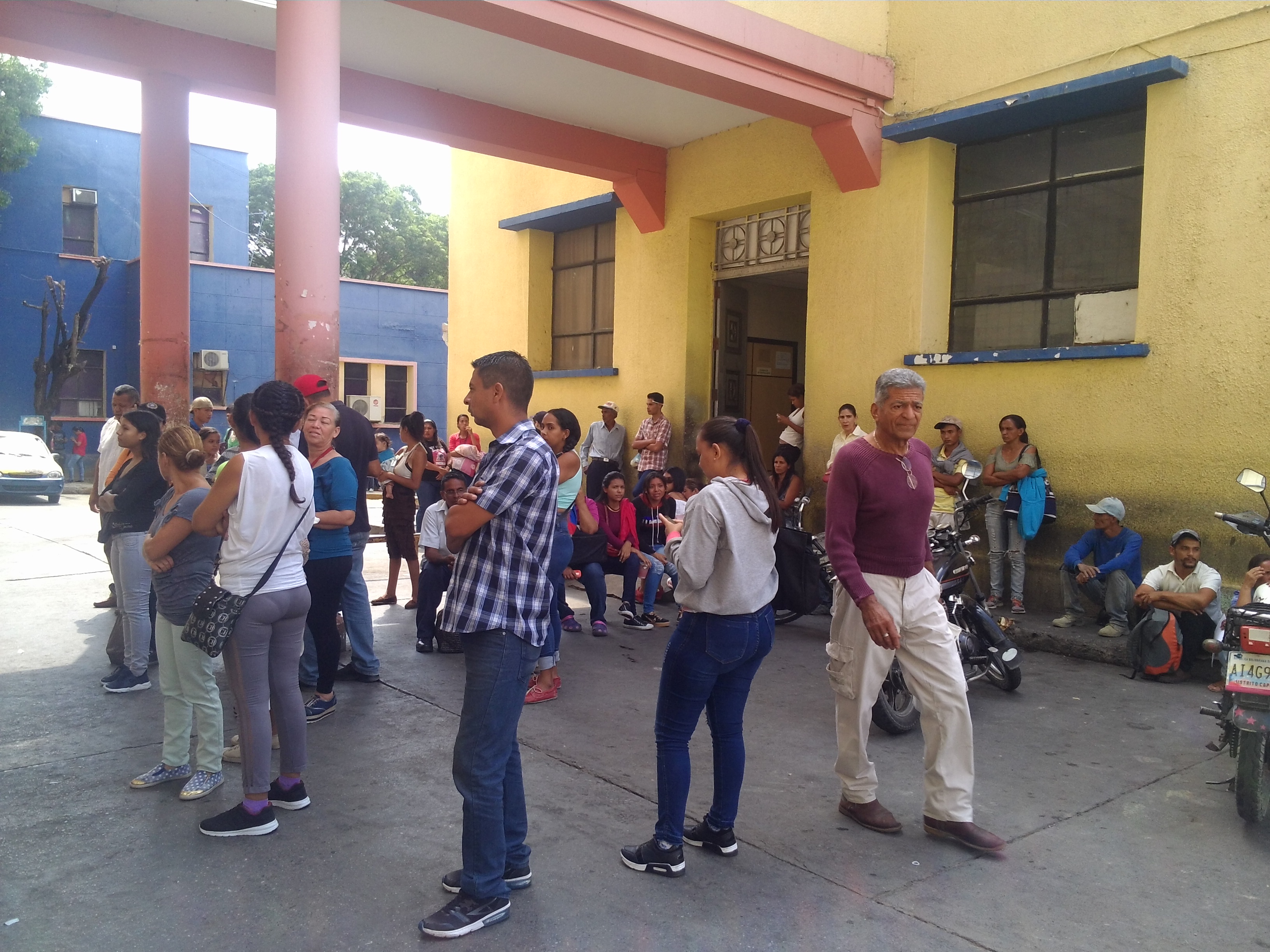How the Maduro Regime Hides the Collapse of Healthcare from a UN Mission
In Barquisimeto, the four envoyées sent by UN Human Rights High Commissioner were only taken to places the regime can control, while patients, doctors and journalists were harassed to stop them from telling the truth to the visitors.


Photos by author.
The technical mission sent by UN Human Rights Commissioner and former Chilean president Michelle Bachelet, didn’t inspect the terrible conditions of Antonio María Pineda Central Hospital in Barquisimeto.
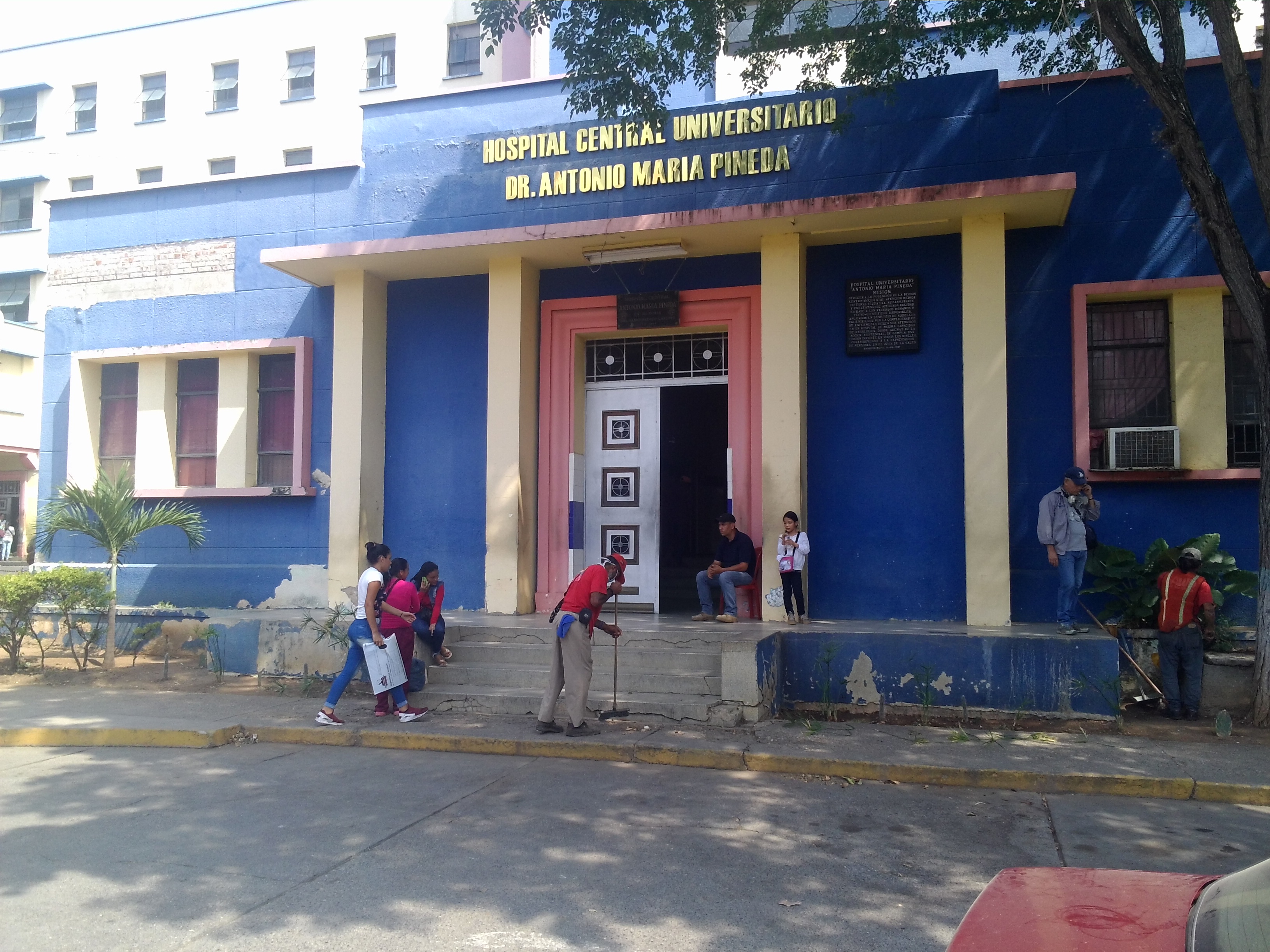 Antonio María Pineda Central Hospital in Barquisimeto.
Antonio María Pineda Central Hospital in Barquisimeto.
The UN commission stuck exclusively to the agenda imposed by the Maduro regime. On March 17th, they were taken by officials from the dictatorship to the Autonomous Service of Pharmaceutical Development (SEFAR) and to the Pastor Oropeza Hospital of the Institute of Social Security, in the Alí Primera social housing project. While there are private healthcare centers or managed by institutions such as the Red Cross, the aforementioned centers are all managed by the central state.
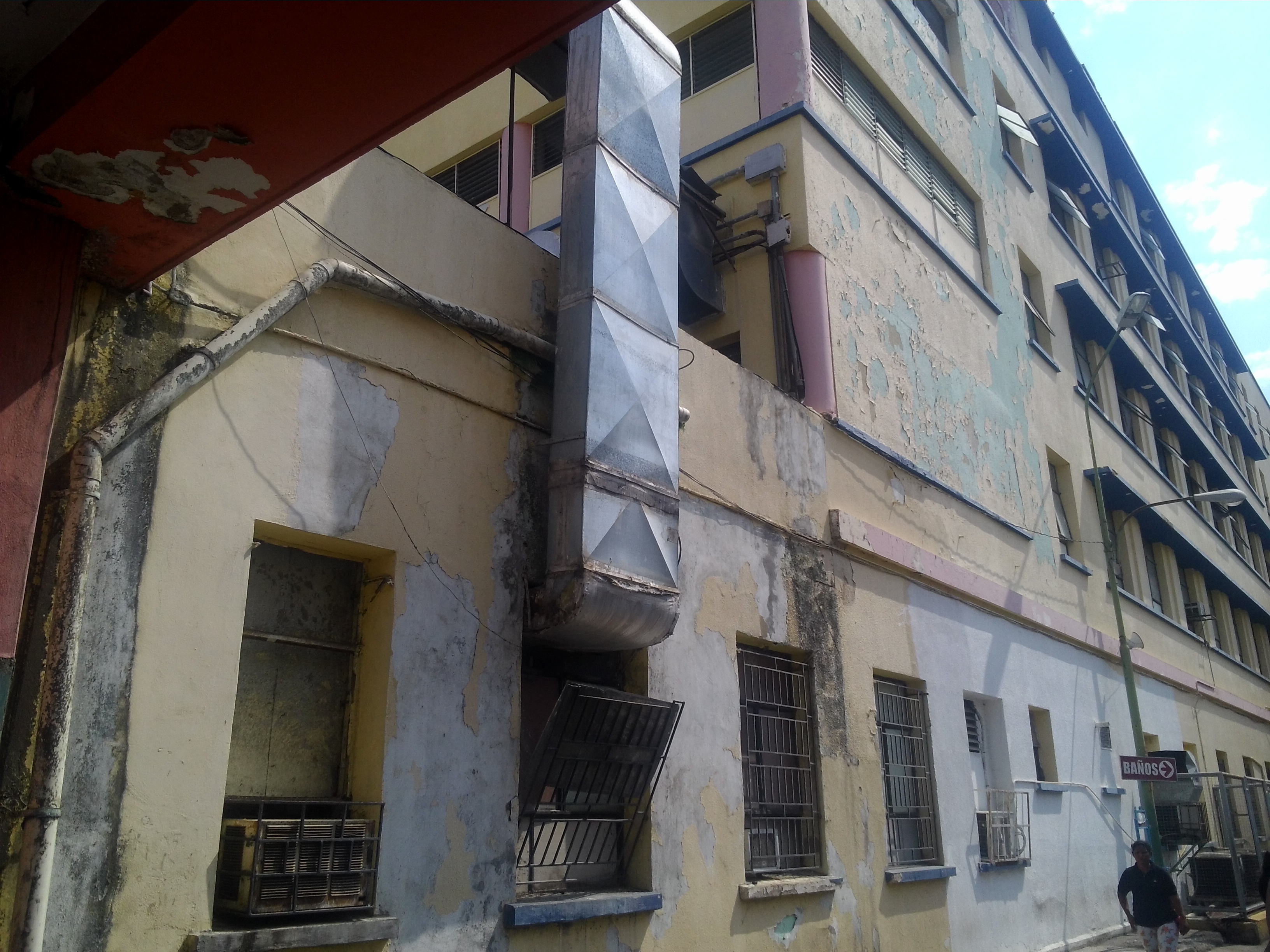 While these cosmetic operations were taking place, outside the hospitals, the patients’ relatives offered heartbreaking testimonies about the service’s true conditions.
While these cosmetic operations were taking place, outside the hospitals, the patients’ relatives offered heartbreaking testimonies about the service’s true conditions.
The patients and healthcare professionals of the Antonio María Pineda Hospital were hoping that the mission would visit the city’s most important public hospital, since they had received three containers with medicines, medical supplies, cleaning products and air conditioners from the Health Ministry; maintenance staff was cleaning the main areas, while others worked on fixing the elevators, replacing light bulbs and painting some walls, something unusual in the Venezuelan healthcare system nowadays. Even security in the facilities was reinforced.
While these cosmetic operations were taking place, outside the hospitals, the patients’ relatives offered heartbreaking testimonies about the service’s true conditions, worsened by the blackout that lasted over five days in Barquisimeto, leaving a severe water crisis. “It’s been a week of many calamities,” said a patient in the maternity area who chose to remain anonymous. “We can catch an infection, there’s blood on the floor, the restrooms are filthy. My baby’s also a patient in the hospital but the pediatric wing is a bit cleaner.”
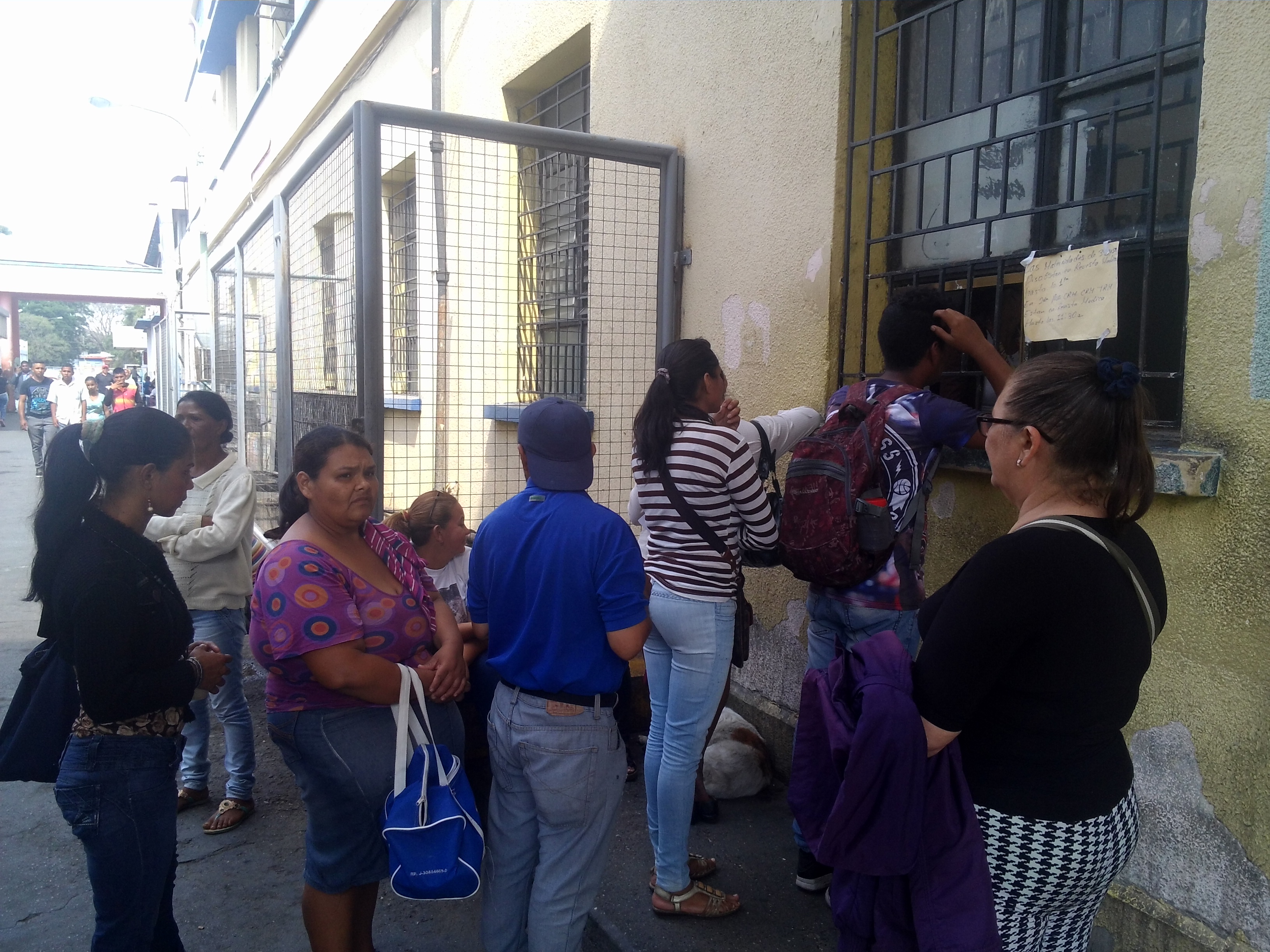 “They’re patching all the holes and everything’s impeccable so they can say that everything’s fine, that there’s no lack of medicines, even when everything’s horrible. We’re worse every day and they deny it.” said Julimar Heredia.
“They’re patching all the holes and everything’s impeccable so they can say that everything’s fine, that there’s no lack of medicines, even when everything’s horrible. We’re worse every day and they deny it.” said Julimar Heredia.
Julimar Heredia, the relative of a hospitalized patient, said: “They’re patching all the holes and everything’s impeccable so they can say that everything’s fine, that there’s no lack of medicines, even when everything’s horrible. We’re worse every day and they deny it.” Julio Aguirre’s wife entered the obstetric emergency for a c-section on March 13th. “They told us to bring absolutely everything: three cold packs, eight pairs of gloves, a small hook used for newborn babies, four bags of saline solution and 26 litres of water. I spent Bs. 173,000 the first day alone. Now that an inspection’s coming, they’re throwing a bunch of smokescreens, but just yesterday, there was a puddle of urine in front of the elevator.”
Dr. Rene Rivas, head of the Medical Association of Lara State, denounced that the health authorities seek to conceal the deficiencies if the UN commission comes for an express visit to the hospital. “We’ve noticed that they’re suddenly bringing supplies without prior coordination. Moreover, there’s a series of infrastructural works because of the UN Human Rights Commission’s visit. As doctors, we’d like UN operatives to visit the country more frequently so that health authorities supply and fix hospitals more regularly.”
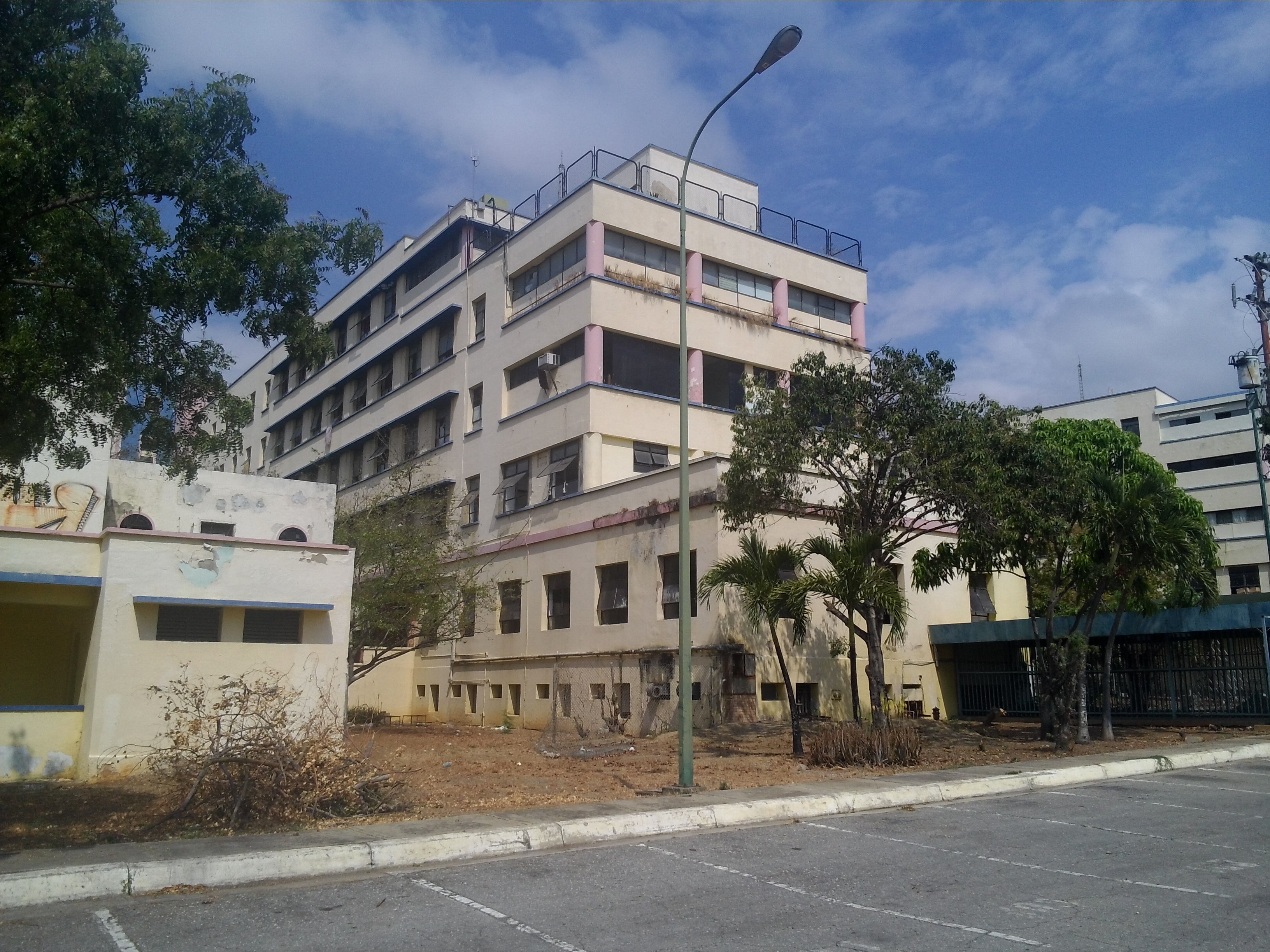 “We’ve noticed that they’re suddenly bringing supplies without prior coordination. Moreover, there’s a series of infrastructural works because of the UN Human Rights Commission’s visit. As doctors, we’d like UN operatives to visit the country more frequently so that health authorities supply and fix hospitals more regularly.”
“We’ve noticed that they’re suddenly bringing supplies without prior coordination. Moreover, there’s a series of infrastructural works because of the UN Human Rights Commission’s visit. As doctors, we’d like UN operatives to visit the country more frequently so that health authorities supply and fix hospitals more regularly.”
Meanwhile, in many other places of the country, the citizens and doctors who wanted to denounce the system’s failures clashed with the National Guard, colectivos and other regime forces that blocked access to those wanting to protest in front of the UN representatives. In the Enrique Tejera Hospital City, in Valencia, several doctors were physically mistreated by the security ring created by the regime around Bachelet’s envoys, and a doctor who managed to talk to the press, Ronny Mantilla, had to go into hiding because the regime’s secret police (SEBIN) raided his house. 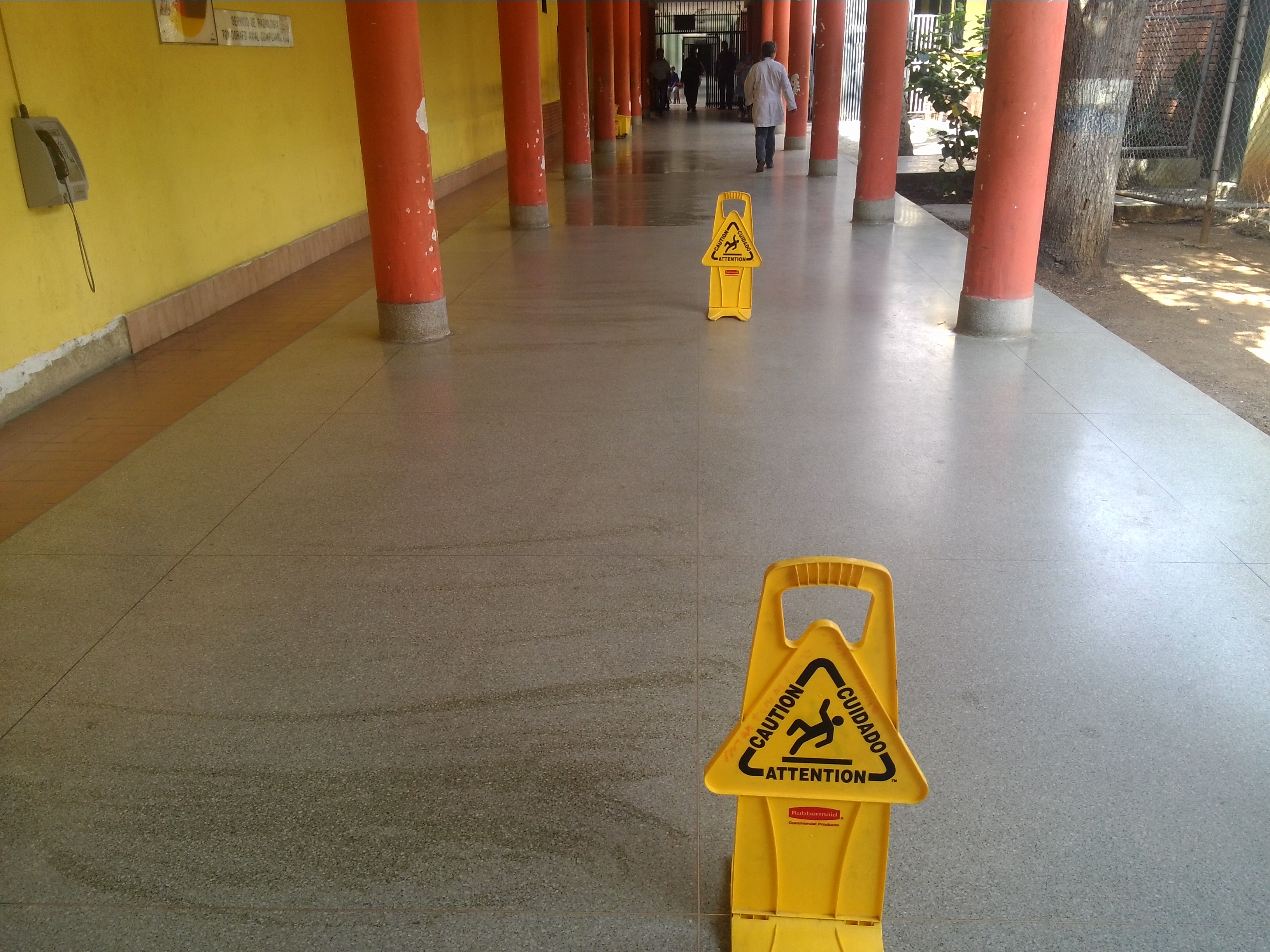 The journalists at the gates of the prison were taken away and were forbidden to take photos by security forces.
The journalists at the gates of the prison were taken away and were forbidden to take photos by security forces.
On March 16th and 17th, at least five cases of intimidation against the press were registered in Barquisimeto. Before the UN commision went to the Uribana prison, the regime’s Prison Minister Iris Varela, said to the guards “send those motherfuckers of the press away, those sons of bitches are here just to fuck with us,” as Instituto Prensa y Sociedad denounced. The journalists at the gates of the prison were taken away and were forbidden to take photos by security forces. At 2:00 a.m., the offices of newspaper El Informador were attacked, and the team from that media outlet was threatened to be burned alive, by colectivos, when they were trying to cover the UN commission’s visit to the Alí Primera complex. Outside the central hospital, journalists from El Informador and El Pitazo were threatened and insulted by Lara State’s health director.
This story isn’t over: the Human Rights Mission will be here for a few more days, while Michelle Bachelet faces considerable pressure to be more frontal in denouncing the abuses against all fundamental rights, which have increased under the Maduro regime.
Caracas Chronicles is 100% reader-supported.
We’ve been able to hang on for 22 years in one of the craziest media landscapes in the world. We’ve seen different media outlets in Venezuela (and abroad) closing shop, something we’re looking to avoid at all costs. Your collaboration goes a long way in helping us weather the storm.
Donate


